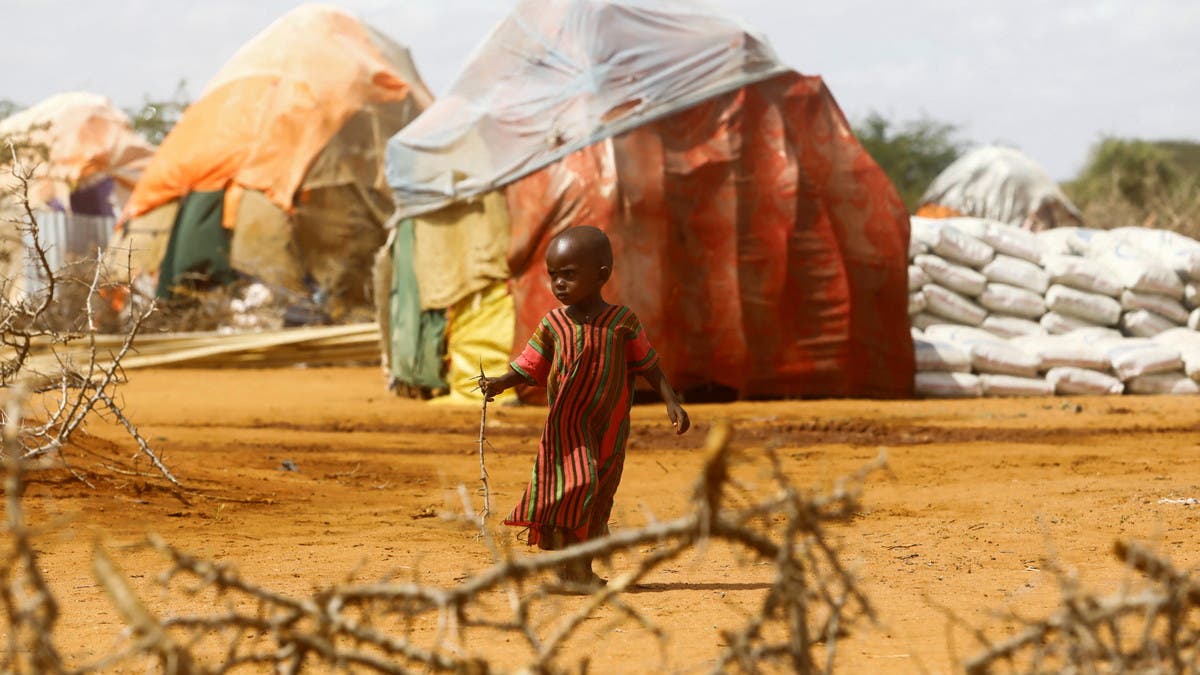Over 90 percent of refugees living in camps have little to no access to electricity, the President of Electriciens sans Frontieres Herve Gouyet said, marking World Refugee Day.
Designated by the United Nations, World Refugee Day falls on June 20 every year to honor refugees across the world by celebrating their strength and courage and raising awareness on key issues they are being faced with.
For the latest headlines, follow our Google News channel online or via the app.
“In many ways, humanity has been making tremendous progress over the past decade; people are richer, healthier, living longer, and are more connected and educated. Yet despite this progress, today, there are more refugees in the world than ever before,” the ESF president said.
The France-based non-profit organization has been solving electrification issues in emergency situations since 1986, aiming to protect vulnerable people against the inequalities of access to electricity and water.
“Currently, more than 90 percent of refugees living in camps have little or no access to electricity. Lack of power poses a challenge for cooking, keeping warm or studying, while women and girls especially face far greater safety risks in camps shrouded in darkness,” Gouyet said.
Camps are usually created as a temporary form of accommodation for refugees, aiming to provide them with the necessary aid and protection. However, Gouyet noted that although refugee camps are intended to be temporary, “the average time a refugee spends in a refugee camp has risen to over 20 years.”
“Lack of lighting can have dangerous consequences, especially for women and children. We believe that providing refugee camps with reliable and clean electricity is one of the most important ways to improve refugees’ safety and overall wellbeing,” the president said.
“Bringing electricity to refugee camps is not only helpful to the people living within the camps but is also good for the planet. Living without power usually means more pollution and greenhouse gas emissions, since people resort to burning firewood or charcoal to meet their household needs. And refugee camps may also use polluting diesel-powered generators to keep the lights on,” he added.
In order to satisfy refugees’ energy needs and take climate change into consideration, Gouyet proposes the use of renewable energies.
ESF is carrying out projects that are focused on using energy provided by the sun or waterways to better enhance energy safety and security in refugee camps.
“We have been involved in the electrification of refugee camps in Somalia, Jordan, Bangladesh, the Dominican Republic, and in many other parts of the world.”
With a network of over 1,200 volunteers and local partners that seek to promote economic development through renewable energies, ESF coordinates activities with aid organizations and governments across the world to achieve the best outcomes for people affected by crises and to help bolster the camps’ energy infrastructure.
“Our humanitarian efforts were recently rewarded by the Zayed Sustainability Prize, a global award that recognizes excellence in sustainability. We won the 2020 Zayed Sustainability Prize in the Energy category. This recognition has helped us further amplify our mission to provide the poorest communities with access to reliable and affordable clean energy,” the ESF president said.
“Providing sustainable and reliable power to refugees is an incredibly ambitious, but achievable goal. We believe the solution lies in achieving greater solidarity in addressing the energy needs of the displaced.”
According to the UNHCR, there are currently around 100 million people who have been displaced.
The global migration crisis has worsened since the onset of the war in Ukraine, when Russia invaded the country on February 24, in what it called a “special military operation,” causing mass displacement and a worsening global hunger and food security crisis.
The Ukraine war is not the only factor that has contributed to the rising number of refugees in the world. Aside from conflict, climate change and the COVID-19 pandemic have played a crucial role in displacing people.
“A warming planet increases the risk of natural disasters that force people to flee and can create resource shortages that could spark tensions and even conflict, leading to more displacement,” the ESF president added.
This year’s World Refugee Day is being held under the theme ‘Whoever. Wherever. Whenever. Everyone has the right to seek safety.’
“Displaced people are among the world’s most vulnerable populations. Thus, they are the most critical group to support to achieve the UN Sustainable Development Goal: ‘Ensure access to affordable, reliable, sustainable and modern energy for all.’”
Read more:
‘It breaks my heart’: Ukrainian expats share despair as Russian invasion rages on
Food security was ‘deteriorating’ before Ukraine war, but has worsened since: Expert
Some wounds never heal: Gaza victims of 11-day war recall trauma one year on

 World3 years ago
World3 years ago
 World3 years ago
World3 years ago
 Business11 months ago
Business11 months ago
 Entertainment7 years ago
Entertainment7 years ago
 World7 years ago
World7 years ago
 Entertainment7 years ago
Entertainment7 years ago






